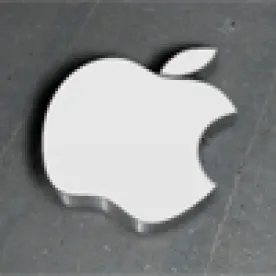Cracked iPhone screens. The consequence of the finger slipping, circus-like juggling, slow motion crashing down of the one device that keeps you connected like none other to the digital world.
Apple has been trying to find a solution to this literal kink in the armor of the world’s most popular smartphone since its release close to 10 years ago. Yet, poor supplier relationship practices has kept Apple from cracking this problem.
The technology exists to replace the current glass screen of the iPhone with a virtually indestructible sapphire screen. Apple had initially contracted with GT Advanced Technologies (GTAT) in 2013 to manufacture all sapphire screens for Apple. However, as we discussed in two of the inceptive posts for this blog, the relationship quickly soured and GTAT eventually had to file for bankruptcy in late 2014. We pointed to two major legal issues with the agreement between Apple and GTAT that likely led to this relationship’s demise.
First, we noted that because the Apple-GTAT contract was a development contract, a contract to develop a new product or to develop an existing product using new technology, tying a full-scale, production-level supply chain agreement to the success of a development contract carried a legion of potential problems. We proposed that Apple and GTAT should have negotiated the development and production phases separately to allow for the necessary changes in contract terms that the unforeseeables in the development phase may cause for the production phase.
Second, we pointed to the issue of product integration. Because the sapphire screen is one component that must be seamlessly integrated with all other components, according to GTAT, Apple insisted on retaining complete control over the fabrication equipment and processes, giving GTAT autonomy only on the fabrication of the screens. Apple’s fabrication and processes produced errors a majority of the time, GTAT alleges, yet GTAT was legally responsible for any errors that resulted from these processes. In the end, notwithstanding disparities in bargaining powers, we noted that supply chain relationships are partnerships, and that a more balanced, realistic supply agreement generally benefits all parties.
Sadly, on January 22 of this year, Hebei Hengbo New Materials Technology Co., Ltd. (Hebei), a Chinese manufacturer of high purity alumina melt stock used to make sapphire glass, has filed suit in the U.S. District Court for the California Northern District against Apple. Hebei’s two count lawsuit alleges claims for (1) enforcement of rescission of contract and for consequential damages; and (2) breach of contract and the implied covenant of good faith and fair dealing. While the majority of the substance of the complaint is redacted, the complaint as it stands is eerily similar to the GTAT debacle. This may very well be a trip down memory lane and another opportunity to work on creating better supply chain practices, or your iPhones may be the ones to continue to crack.



 />i
/>i
